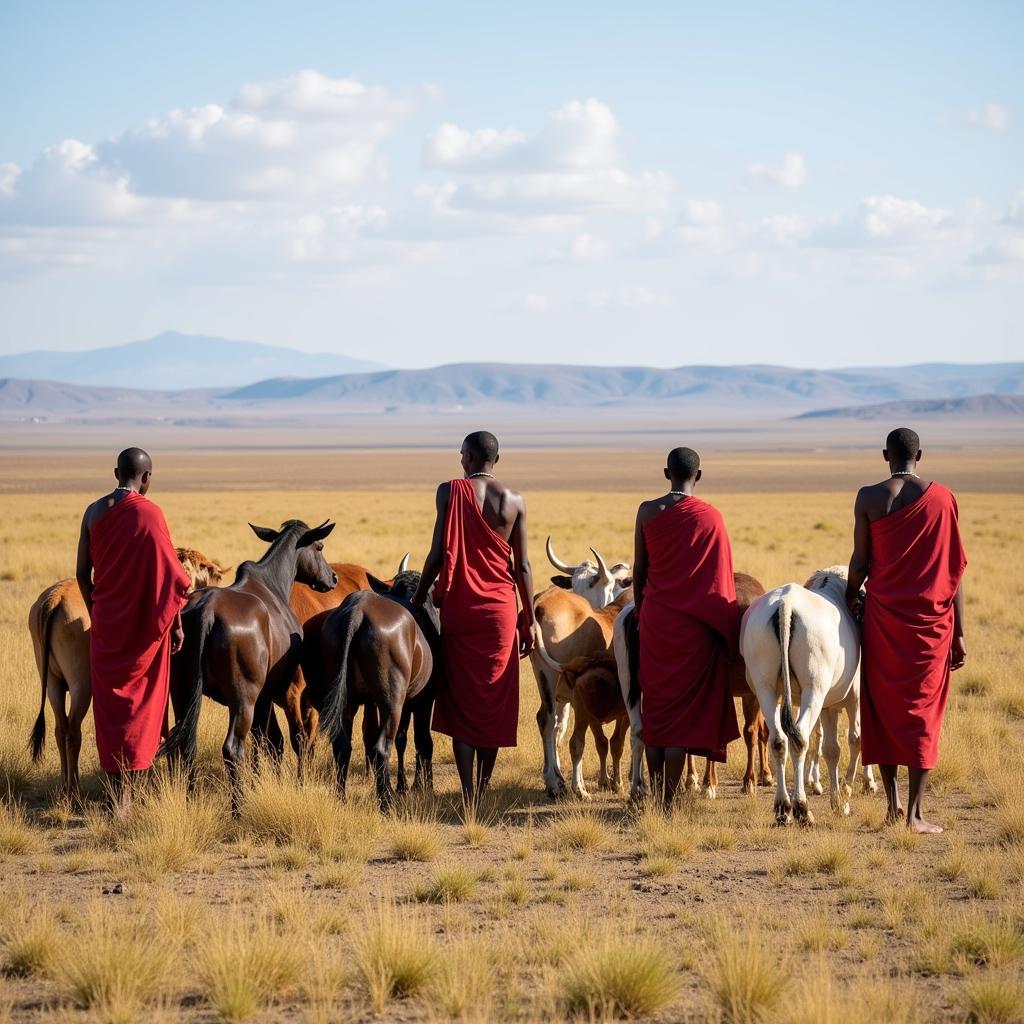African Countries Rich in Natural Resources
Africa, a continent of immense diversity and potential, is renowned for its abundance of natural resources. These resources play a crucial role in the global economy and significantly impact the development trajectory of individual African nations. From vast mineral deposits to fertile agricultural lands and substantial energy reserves, the continent holds a treasure trove of natural wealth. Understanding the distribution and management of these resources is key to unlocking Africa’s sustainable growth and prosperity.
The Diversity of Natural Resources Across the Continent
Africa boasts a wide array of natural resources, distributed unevenly across its 54 countries. Some nations are blessed with significant oil reserves, while others possess vast mineral deposits such as gold, diamonds, and coltan. The continent is also home to substantial reserves of natural gas, coal, and uranium. Beyond these, Africa’s rich biodiversity and fertile lands offer immense potential for agriculture, forestry, and tourism. This diverse resource base presents both opportunities and challenges for African countries.
Key Minerals Driving African Economies
Several key minerals play a vital role in the economies of many African countries. Gold, diamonds, and platinum are prominent examples, contributing significantly to export revenues and employment. South Africa, for instance, is a world leader in gold and platinum production. Botswana’s economy is heavily reliant on diamond mining. Other minerals like coltan, bauxite, and copper are equally important for countries like the Democratic Republic of Congo, Guinea, and Zambia respectively. However, the exploitation of these resources also raises concerns about environmental sustainability and equitable distribution of benefits.
The Impact of Natural Resources on Development
The presence of abundant natural resources can significantly impact a country’s development trajectory. It can provide a source of revenue for governments to invest in infrastructure, education, and healthcare, potentially leading to improved living standards. However, the so-called “resource curse” is a well-documented phenomenon where resource-rich countries can experience slower economic growth and greater inequality than resource-poor nations. This can be attributed to factors such as corruption, volatile commodity prices, and a lack of diversification in the economy. Navigating these challenges requires sound governance, transparent resource management, and a focus on sustainable development. The stability of some governments has been linked to their management of these resources. You can read more about african countries with stable governments.
Challenges and Opportunities in Resource Management
Managing natural resources effectively is crucial for sustainable development in African Countries Rich In Natural Resources. One major challenge is ensuring that the benefits of resource extraction are shared equitably among the population. This requires transparent revenue management, robust regulatory frameworks, and mechanisms for community participation in decision-making. Another challenge is mitigating the environmental impact of resource extraction. Sustainable mining practices, reforestation efforts, and investments in renewable energy are essential to minimize environmental damage and promote a green economy. However, amidst these challenges lie tremendous opportunities. Africa’s vast renewable energy potential, including solar, wind, and geothermal, can drive sustainable development and provide access to clean energy for millions.
Why is understanding the distribution of natural resources important?
Understanding the distribution of natural resources is crucial for effective planning and development. It allows governments to make informed decisions about resource allocation, infrastructure development, and economic diversification.
Investing in Human Capital and Diversification
While natural resources can be a catalyst for development, investing in human capital and diversifying economies are equally crucial for long-term prosperity. Education, healthcare, and skills development are essential to empower citizens and create a productive workforce. Economic diversification reduces dependence on volatile commodity prices and creates more resilient economies. Promoting value addition and developing downstream industries can generate higher incomes and create more jobs. Find out more about african country list with conditions. The vast and diverse african continent physical features also contribute to the continent’s wealth of natural resources.
Conclusion
African countries rich in natural resources have the potential to achieve significant economic growth and improve the lives of their citizens. However, realizing this potential requires responsible resource management, transparent governance, and a commitment to sustainable development. Investing in human capital, diversifying economies, and fostering regional cooperation are essential to unlock Africa’s full potential and ensure a prosperous future for all. Understanding the challenges and opportunities associated with natural resource management is critical for achieving sustainable development and building a brighter future for Africa.
Expert Insights:
- Dr. Amina Omar, Economist, University of Nairobi: “Effective resource governance is critical for translating natural resource wealth into sustainable development outcomes in Africa.”
- Professor Kofi Asante, Geologist, Kwame Nkrumah University of Science and Technology: “Diversifying African economies beyond resource extraction is crucial for long-term economic resilience and job creation.”
- Ms. Fatoumata Ndiaye, Environmentalist, Senegal: “Sustainable resource management requires a holistic approach that considers environmental, social, and economic factors.”
FAQ
- What are the most common natural resources found in Africa? Africa is rich in minerals like gold, diamonds, coltan, and bauxite, as well as oil, natural gas, and agricultural land.
- How can the resource curse be avoided in African countries? Transparent governance, responsible resource management, and economic diversification are key to avoiding the resource curse.
- What is the role of renewable energy in Africa’s development? Renewable energy can drive sustainable development, provide access to clean energy, and create new economic opportunities.
- Why is investing in human capital important for resource-rich countries? Investing in human capital empowers citizens, creates a productive workforce, and supports long-term economic growth.
- What are the challenges of resource management in Africa? Challenges include equitable benefit sharing, environmental protection, and managing volatile commodity prices.
Other resources
For further information, you might be interested in reading about african black women 18+.
Contact us
When needing assistance please contact us:
- Phone Number: +255768904061
- Email: kaka.mag@gmail.com
- Address: Mbarali DC Mawindi, Kangaga, Tanzania
We have a 24/7 customer service team.



